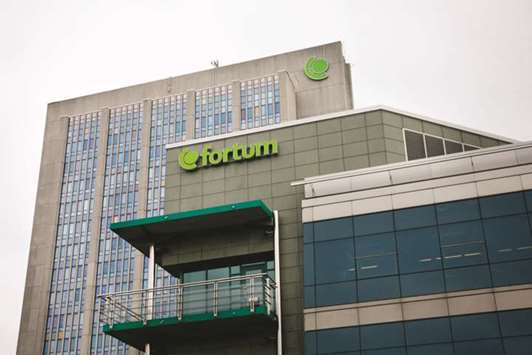Uniper advised its shareholders not to accept an offer from Finnish utility Fortum Oyj and said the price doesn’t reflect the German utility’s true value.
Finland’s biggest energy company has offered to buy all of Uniper for €22 ($25.84) a share after this month receiving approval from Germany’s financial watchdog. The €8.05bn takeover bid doesn’t provide a clear development path for the Dusseldorf-based power producer, Uniper said yesterday in a statement.
“The offer price is simply not attractive,” chief executive officer Klaus Schaefer said yesterday in an interview with Bloomberg Television. “There’s a limited strategic benefit for us as Uniper and the intentions of what Fortum really wants to do is unclear.”
The deal would be Europe’s largest utility acquisition in five years, and Fortum’s biggest ever. It would triple the company’s power generation capacity, add one of Europe’s biggest energy trading operations to its own activities and expand assets from the UK to Russia.
The utility has been under pressure from investors and analysts for years to spend a cash pile of billions of euros built up after selling stakes in Nordic distribution grids.
Uniper was born when Germany’s EON SE split itself into two companies and was listed in September last year, mainly in response to Germany’s shift to solar and wind power from nuclear and fossil fuels.
Uniper was little changed at €23.725 a share in Frankfurt yesterday. The stock has soared 81% this year, compared with a 7.4% advance for the 29-member Stoxx Europe 600 Utilities Index. Fortum fell 1.4%.
“The company has performed exceptionally well since becoming independent, is financially sound and makes a significant contribution to the security of supply with gas and power in Europe,” Bernhard Reutersberg, the company’s supervisory board chairman, said in a statement. “Fortum’s offer puts the successful future development of Uniper at risk.”
Fortum CEO Pekka Lundmark and Schaefer met this month in Dusseldorf and discussed the approach after weeks of both sides using the media to communicate their messages.
Uniper on November 1 took out a full-page ad in Finland’s biggest daily newspaper in a bid to persuade Fortum shareholders to reject the deal. The talks were “constructive,” German weekly Wirtschaftswoche quoted Lundmark as saying.
“We had a constructive meeting and we’ll have to see where we’ll take it from here,” Schaefer said in the interview. Uniper plans to meet with Fortum again “soon,” he said.
EON agreed to sell its 47% stake in Uniper to Fortum, which effectively would give the Finnish utility a majority of the voting rights.
The company can also buy additional Uniper shares without having to make a second takeover offer, according to German legislation. Should the deal go ahead, it would be good for Fortum’s cash flow, said Petri Gostowski, an analyst at Inderes Oy in Helsinki.
“It’s good in that earlier the capital has been sitting on the balance sheet, yielding very weak returns,” he said. “Fortum will get good cash flow, presuming they take dividends, which is very likely. So in that sense it supports Fortum’s ability to pay dividends.”
Fortum’s offer is “highly attractive,” EON said in an emailed statement. Fortum didn’t have an immediate comment to Uniper’s rejection.
“We will most likely see a change in our largest shareholder, and it’s quite clear that we need to see in what form we can work together, in what form we can possibly cooperate,” Schaefer said. The companies have some “limited overlaps” in terms of nuclear and hydro generation in Sweden and their Russian businesses, he said. “Let’s just see what we can come up with.”
Citing a 35% average control premium for cash offers for takeovers in Europe dating back to 2002, Uniper said that would put the offer price on the company at more than €27 per share.
EON’s breakout clause from the deal of as much as €1.5bn “is absolutely not customary at such a level” and a bid from a rival would have to be €30.80 to be attractive from EON’s point of view, Christopher Delbrueck, Uniper’s chief financial officer, said at a press conference. But the company isn’t planning any legal action to challenge it.

The headquarters of Fortum Oyj in Espoo, Finland. The biggest energy company in Finland has offered to buy all of Uniper for $25.84 a share after this month receiving approval from Germany’s financial watchdog.
